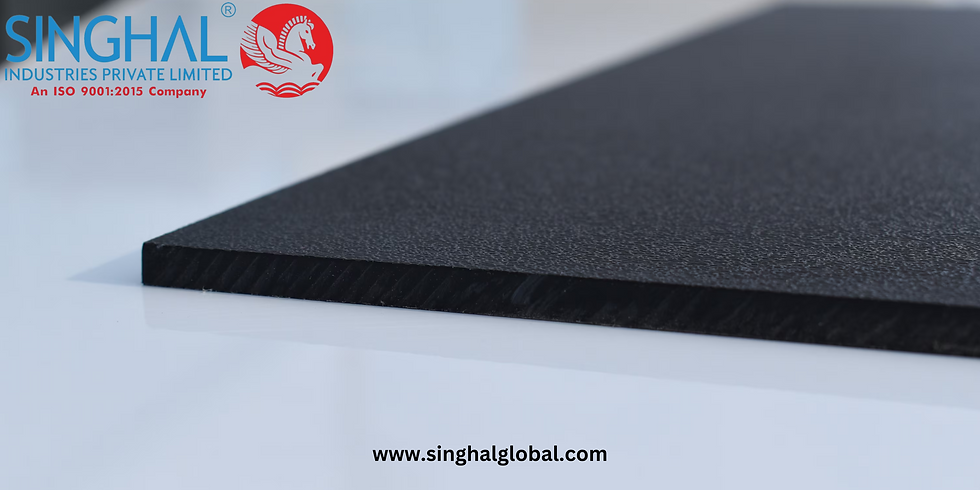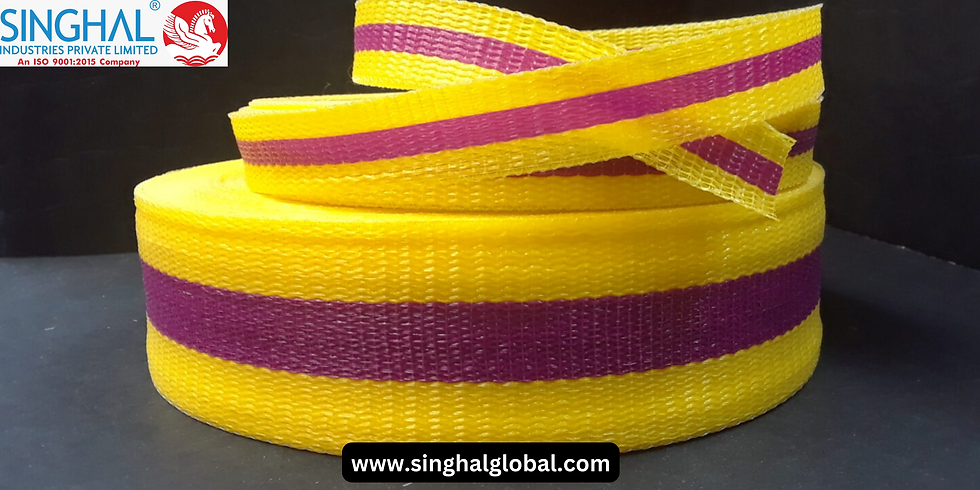Harnessing the Potential of Geo Bags: A Revolution in India's Infrastructure Sector
- Sahil Prakash
- Apr 17, 2024
- 3 min read
Introduction:
In the dynamic landscape of India's infrastructure development, innovative solutions are constantly sought to address challenges such as soil erosion, slope protection, and retaining wall construction. Geo Bags, also known as Geotextile Bags, have emerged as a transformative solution in this regard. With a burgeoning presence in the market, Geo Bags are revolutionizing the way we approach construction projects, offering unparalleled versatility, cost-effectiveness, and sustainability. This article delves into the intricacies of Geo Bags Industries in India, exploring their advantages, benefits, and their role in shaping India's infrastructure industry.
Advantages of Geo bags:
Erosion control:
Geo Bags act as a robust barrier against soil erosion, effectively stabilizing slopes and shorelines. Their high tensile strength and permeability make them ideal for erosion control applications, preventing sediment runoff and preserving the integrity of natural landscapes.
Retaining wall construction:
Geo Bags serve as a versatile alternative to traditional retaining wall materials such as concrete or stone. Their flexibility and ease of installation enable the construction of durable retaining structures, minimizing the environmental impact and reducing project timelines.
Flood protection:
In flood-prone regions, Geo Bags offer an effective solution for flood protection measures. By creating barriers and embankments, they help mitigate the impact of flooding, safeguarding infrastructure and communities against inundation.
Soil stabilization:
Geo Bags play a crucial role in soil stabilization projects, particularly in areas with poor soil quality or steep terrain. By confining soil particles and reinforcing unstable slopes, they enhance the structural integrity of embankments, roads, and other civil engineering structures.
Benefits of Geo bags:
Cost-effectiveness:
Compared to traditional construction materials, Geo Bag Manufacturers in India offer significant cost savings in both material and labor expenses. Their lightweight nature reduces transportation costs, while their ease of installation minimizes construction time and manpower requirements.
Environmental sustainability:
As advocates of sustainable development, Geo Bags embody environmentally friendly principles by reducing the need for excavation and minimizing disturbance to natural ecosystems. Additionally, their recyclable materials contribute to waste reduction and promote circular economy practices.
Adaptability:
Geo Bags can be tailored to suit a wide range of project requirements, including varying soil conditions, slope gradients, and hydraulic loads. Their adaptability makes them suitable for diverse applications, from coastal protection projects to highway embankments.
Durability: Engineered to withstand harsh environmental conditions, Geo Bags exhibit exceptional durability and longevity. Resistant to UV degradation, chemical exposure, and biological degradation, they provide long-term stability and performance, ensuring the longevity of infrastructure investments. Conclusion: Geo Bags have emerged as a game-changing technology in India's infrastructure sector, offering a myriad of advantages and benefits across diverse applications. From erosion control to flood protection, their versatility and cost-effectiveness make them indispensable assets in construction projects nationwide. As Geo Bag Exporters in Ahmedabad and beyond continue to innovate and refine their products, the adoption of Geo Bags is poised to accelerate, driving sustainable development and resilience in India's built environment. FAQs: Q: Are Geo Bags suitable for use in coastal erosion projects?
A: Yes, Geo Bags are highly effective in coastal erosion control due to their robust construction and permeable design, which allows for proper drainage while preventing sediment loss.
Q: How do Geo Bags compare to traditional retaining wall materials in terms of cost?
A: Geo Bags offer significant cost savings compared to traditional materials such as concrete or stone. Their lightweight nature reduces transportation and installation costs, making them a cost-effective alternative.
Q: Are Geo Bags environmentally friendly?
A: Yes, Geo Bags are environmentally friendly as they minimize excavation and disturbance to natural ecosystems. Additionally, their recyclable materials contribute to waste reduction and promote sustainable construction practices.
Q: What is the typical lifespan of Geo Bags?
A: Geo Bags are engineered for durability and can have a lifespan ranging from 5 to 10 years or more, depending on factors such as environmental conditions and maintenance practices.



Comments